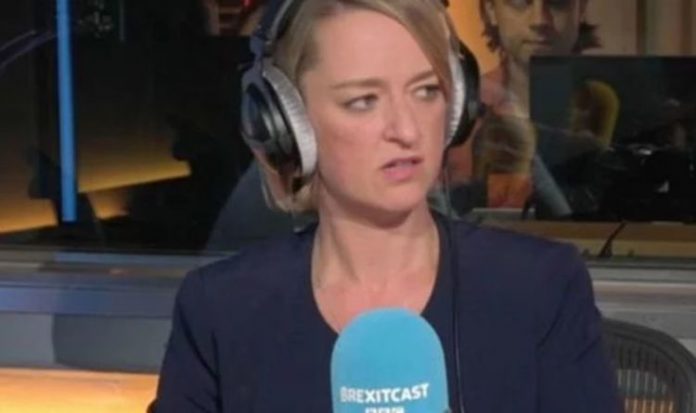A listener objected to Ms Kuenssberg’s choice of words when she discussed getting “into the nitty-gritty” of the abrupt departure from Downing Street of Boris Johnson’s advisor Lee Cain. The complaint was initially dismissed by Brexitcast editors but then escalated to the corporation’s executive complaints unit which has now ruled in Ms Kuenssberg’s favour.
Some anti-racism campaigners claim the term nitty-gritty originated with the slave trade but etymology experts say no evidence has ever emerged to suggest this is the case.
Gary Martin, a language researcher who runs the phrases.org.uk website, said: “It has been alleged that ‘nitty-gritty’ is a derogatory reference to the English slave trade of the 18th century.
“The phrase is usually used with the prefix ‘getting down to’ and there is a sense that, whatever the nitty-gritty is, it is at the bottom of something.”
He continued: “The suggestion is that it originated as a term for the unimportant debris left at the bottom of ships after the slaves had been removed and that the meaning was extended to include the slaves themselves.”
Mr Martin said claims of the term’s slave trade origins surfaced in a newspaper report about an equality and diversity course for Bristol Council employees in 2005.
READ MORE: BBC crisis: Huge poll blow as former chief admits its LOST TOUCH
But he said: “There is no evidence to support the suggestion that ‘nitty-gritty’ has any connection with slave ships.
“It may have originated in the USA as an African-American expression, but that’s as near as it gets to slavery.
“It isn’t even recorded in print until the 1930s, long after slave ships had disappeared, and none of the early references make any link to slavery.”
The BBC has not publicly commented on the executive complaints unit’s ruling or revealed how many objections it received.
The corporation tightened up its guidelines on the use of racist language in news reports last September, meaning that the most offensive terms can be broadcast only for “exceptional editorial reasons” with the personal approval of division directors.
And the ruling comes at a sensitive time for the broadcaster which is keen to shake off perceptions of a “woke culture” among bosses and programme editors.







